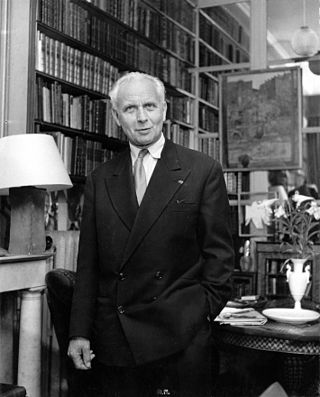
Louis Aragon was a French poet who was one of the leading voices of the surrealist movement in France. He co-founded with André Breton and Philippe Soupault the surrealist review Littérature. He was also a novelist and editor, a long-time member of the Communist Party and a member of the Académie Goncourt. After 1959, he was a frequent nominee for the Nobel Prize in Literature.

The National Front for an Independent France, better known simply as National Front was a World War II French Resistance movement created to unite all of the resistance organizations together to fight the Nazi occupation forces and Vichy France under Marshall Pétain.
Jean Guitton was a French Catholic philosopher and theologian. Le Monde called him "the last of the great Catholic philosophers."

Patrick Cabanel is a French historian, director of studies at the École pratique des hautes études and holder of the chair in Histoire et sociologie des protestantismes. He mainly writes on the history of religious minorities, the construction of a secularised French Republic and French resistance to the Shoah.
Georges Politzer was a French philosopher and Marxist theoretician of Hungarian Jewish origin, affectionately referred to by some as the "red-headed philosopher". He was a native of Oradea, a city in present-day Romania. He was murdered in the Holocaust.

Jean Paulhan was a French writer, literary critic and publisher, director of the literary magazine Nouvelle Revue Française (NRF) from 1925 to 1940 and from 1946 to 1968. He was a member of the Académie française. He was born in Nîmes (Gard) and died in Paris.
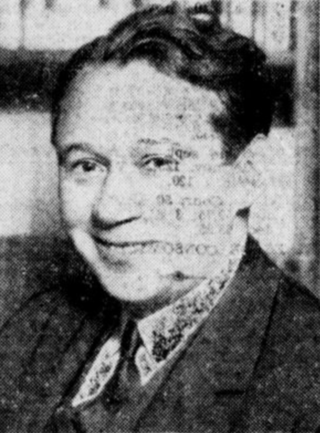
Georges Suarez, was a French writer, essayist, journalist, and jurist. Initially a pacifist during the rise of Nazi Germany, he later became a right-wing journalist and collaborator. He had been editor of Aujourd'hui, a French newspaper controlled by the Third Reich after the resignation of the writer Henri Jeanson. Suarez was also the biographer of Philippe Pétain, and other figures of the French Third Republic. He was the first journalist sentenced to death during the Épuration légale.
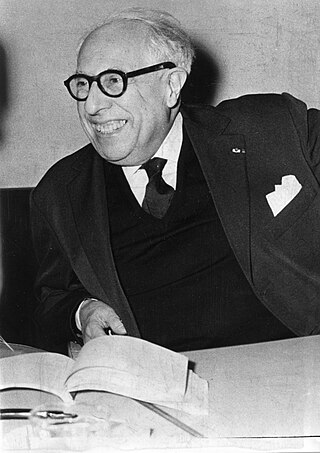
Jean Cassou was a French writer, art critic, poet, member of the French Resistance during World War II and the first Director of the Musée national d'Art moderne in Paris.
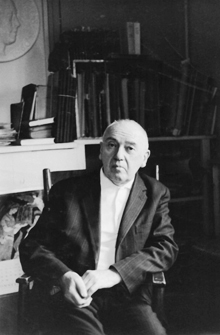
Jean Grenier was a French philosopher and writer. He taught for a time in Algiers, where he became a significant influence on the young Albert Camus.
Les Lettres Françaises is a French literary publication, founded in 1941 by writers Jacques Decour and Jean Paulhan. Originally a clandestine magazine of the French Resistance in German-occupied territory, it was one of the many publications of the National Front resistance movement. It received contributions from Louis Aragon, François Mauriac, Claude Morgan, Édith Thomas, Georges Limbour, Raymond Queneau and Jean Lescure.

Patrick Grainville is a French novelist.

Régis Messac was a French essayist, poet and translator.
Gustave Cohen was a French medievalist.
Valentin Feldman was a French philosopher and Marxist of Jewish-Russian origin. In 1942, he was murdered by the Nazis during the Occupation of France.
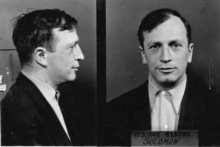
Jacques Solomon was a French physicist and Marxist who played a central role in the debate over quantum mechanics in France in the 1930s and 1940s. He was killed by firing squad at Fort Mont-Valérien in 1942.

Albert Pierre Jules Joseph Bayet was a French sociologist, professor at both the Sorbonne and the École pratique des hautes études.

Jacques De Decker was a Belgian writer and author.

The clandestine press of the French Resistance was collectively responsible for printing flyers, broadsheets, newspapers, and even books in secret in France during the German occupation of France in the Second World War. The secret press was used to disseminate the ideas of the French Resistance in cooperation with the Free French, and played an important role in the liberation of France and in the history of French journalism, particularly during the 1944 Freedom of the Press Ordinances.
Frédéric Musso was an Algerian-born French writer, poet, and journalist.
René Maublanc was a French Marxist philosopher and historian.













